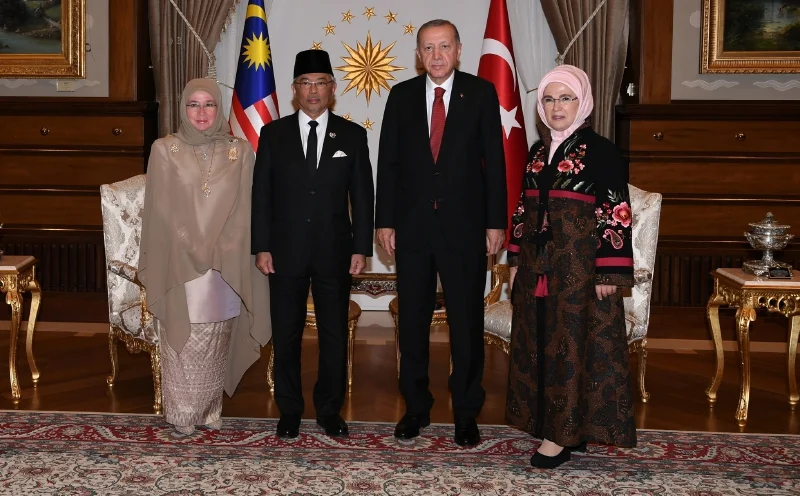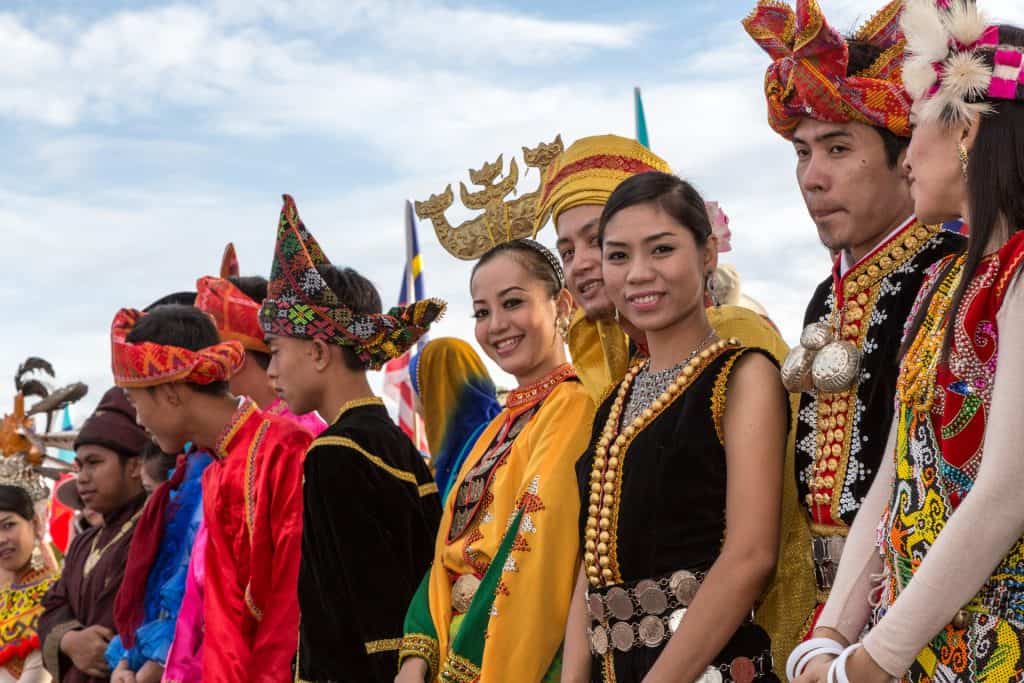Introduction
Perhaps the less travelled road in diplomacy is the Track II Diplomatic way of advancing a nation’s agenda in the post-modernist era of international relations (IR). Ever since the Westphalian system was introduced in 1641 and up to the end of World War II (WWII), the approach in carrying out the international relation of one’s nation was confined mostly through an official channel (Track I Diplomacy – official to official). Things have evolved and changed tremendously during the Cold War period where official starts to talk to non-official (known as Track 1.5) due to the cumbersome bureaucratic government which has red-tape structures and various protocols that often halted a swift exchange of information and void of clear understanding and reasoning why leaders make decisions. With the arising need for leaders to contemplate a decision that would lead to certain annihilation, individuals which are non-official regularly was privy and had access to decision makers were confided on the next course of action as what can be seen during the Cuban Missiles Crisis, 1962.
With the growing of the critical mass in our society outside the government machinery and free interchange and easy access of information, the non-official charms of individuals in influencing decision-making process based on their personal experience and knowledge on certain areas which can be offered to the highest order have somehow created a Track II Diplomacy. Provided the offensive charms are pursuant to the existing agenda and must be in line with the innate interest of one’s nation that rarely changes. In the post-modernist era of doing business, public opinions often shaped how we as a nation behaves as long as they remain true to the innate interest of its nationhood. President Obama in his book, The Promised Land said it aptly where I quote:
“Each nation’s foreign policy remained driven by its own economic interests, geography, ethnic and religious schisms, territorial disputes, founding myths, lasting traumas, ancient animosities-and, most of all, the imperatives of those who had and sought to maintain power.”
As such, good leaders usually read books and seek intellectual opinions and guidance outside the government machinery in shaping their understanding on certain issues which usually pen out by academician, former diplomats, and keen interested individuals with a clear observation on causal effect when it comes to geopolitical and power dynamics of a nation’s behaviour. Moreover, the ever unparalleled power of the internet in the new age would prompt world leaders to have a direct discussion with their citizens and requires them to make an informed decision on matters related to trade, security, and defence.
Recognising the power of Track II Diplomacy
Malaysia as a country since its independence in 1957 has played an immense role in canvassing Southeast Asian nations to congregate and talk to each other starting with issues that revolve around culture and trade. Although the initial impetus was due to the conflict of existence as a nation when Indonesia and The Philippines oppose the inclusion of Sabah and Sarawak in the Malaysia project in 1963, the formation of MAPHILINDO which evolved to ASEAN later has proved to be very useful for Southeast Asian countries to interact for the first time outside the Colonial tutelage. Moreover, the significance of the Afro-Asian Conference that was organised in Bandung in 1955 has emboldened the newly independent countries to chart their own course outside the superpower influence in nationhood building. However, that is another topic to be discussed. The point was that Malaysia as a middle-power has a strong role to play in the IR matters especially within this region, and in pursuant to this objective the prescient tool for Malaysia to utilise apart from the official mode of advancing our national interest in the international forum is the Track II Diplomacy.
The geostrategic location of Malaysia with strong democratic norms and a robust economy is an advantage and an attractive package for individuals (non-citizens) to look up to Malaysia as a country to emulate in pursuant to the Track II Diplomacy agenda. Our avid involvement in the surrounding ethnocentric conflict such as the Southern Mindanao and Southern Thailand peace process between rebels and respective central governments is more of the reason why Malaysia needs to emphasise the Track II Diplomacy activities among the affected peoples. Moreover the internal conflict in Rakhine State or even Acheh once has a direct impact on our security with the influx of the Internally Displaced Peoples (IDPs) and illicit activities that come with it (the arms trade and human trafficking). Although Malaysia is not yet a party to the 1951 Refugee Convention, we have been kind enough in harboring and temporarily sheltering thousands of stateless people coming from surrounding conflict areas such as the Rohingya from the Rakhine State since the 1980s and latest in 2016. Plus, the porous border condition in the northern peninsular and the in divisive culture and religion of its people would offer Malaysia as a safe destination for political dissidents from Southern Thailand.
What Track II Diplomacy can offer for Malaysia?
The other strength that Malaysia possess is that the Track II Diplomacy sponsored program which has already embedded within the Malaysian government-sponsored activities since the 1970s. Although initiated under the bilateral and multilateral assistance program, the initiative known as the Malaysian Technical Cooperation Program (MTCP) has grown into potent activities in developing effective government machinery for our friendly countries through short training and best practices sharing. MTCP should be further strengthened in offering an up to date training not only for foreign official personal but also prospective leaders among the IDPs from conflict areas such as the Rohingya, Southern Thai Malay-Muslim, and Southern Mindanao Moro community leaders. The other existing effective Track II Diplomacy tool is the Malaysian Defence Cooperation Program (MDCP) of which can be offered through the military diplomacy agenda with friendly countries especially for the poor and aspiring newly established states such as African states, South Asia, or Polynesian countries. The MDCP can be a good ambassadorial tool not only for the Malaysian Armed Forces (MAF) but also for Malaysia on defence diplomacy agenda among countries that share our mutual interest and offer potentials benefits in the long-run such as Maldives, Sri Lanka, Timor Leste, and CLMV countries.
While being active on the MTCP and MDCP platforms, the South-South Cooperation (SSC) that is currently being championed by Malaysia proves to be useful in advancing our nation’s interest in other fields such as trade, commerce, health and multifarious matters. The technical assistance rendered to friendly countries under the SSC or the recent vaccines, diplomacy and aid reliefs on Covid-19 have the potentials in bringing growth and benefits once the charms of individuals recognition over Malaysia good effort in helping their countries to prosper without the risk of foreign debt entrapment as can be seen through the Belt and Road Initiative (BRI) to countries such as Djibouti, Niger, Republic of Congo, Laos, Cambodia, and Maldives.
As Malaysia continues to grow strong on the road to nationhood, we have developed our education capacity further and on certain areas such as on Technical Vocational Education and Training (TVET) and we can proudly claim to be a number one education hub for this region. The Polytechnic colleges, 20 public sponsored universities (among the top 100 best in the world), numerous government linked universities and hundreds of private universities in Malaysia under the purview of the Ministry of Education (MoE) can be put to good use as an effective Track II Diplomacy tools by providing scholarships for future leaders of the third world countries, officials under the SSC, or even stateless people marred by the ethnocentric conflicts in Southeast Asia. This can be done through a detailed method of recognising good talents that have the potentials of becoming future leaders and top government officials in respective countries. Ministry of Foreign Affairs (MFA) should invest more to spruce up the Track II Diplomacy via the existing platforms.
However the fields of studies need to be confined mostly to good governance, human rights, international relations, public administration, community empowerment, conflict resolutions or studies related to nation-building since the initial purpose was to nurture good future leaders of friendly countries. Furthermore, in an effort to create a critical mass on strategic issues, Malaysia needs to encourage more critical write up from the Institute of Strategic and International Studies (ISIS) Malaysia in creating awareness among its people on various issues and the MFA itself should continue to hire former rated diplomats in giving lectures and effective write-up on issues related to diplomacy.
Apart from spending on non-citizens, government agencies, and related ministries in Malaysia need to take seriously for officials’ participation in the Fullerton Forum and Shangri-La Dialogue that was held annually in Singapore organised by the International Institute of Strategic Studies (IISS). The Fullerton Forum and Shangri-La Dialogue perhaps are the most useful platform for government officials to gauge the current defence sentiments and rational understanding of nation’s behaviour in this part of the world. It was believed due to the success of both forum in having a frank and open discussion on defence and security matters, it was one of the reason why Singapore itself was selected to hold the 2018 North Korea and United States Summit to discuss on denuclearisation of the Korean Peninsula bringing confidence-building measures into a new level of negotiating table in averting a nuclear war. These forums would also be useful for Malaysian officials to actively engage in an academic forum and build up experiences in a tack diplomatic activities during side meetings.
Conclusion
The Track II Diplomacy initiative offers a lot of long-term benefits to Malaysia. However, since the implementation was through the non-official individuals, it cannot guarantee a quick return or clear-cut benefits in the pursuant of our national interest. Nevertheless, as the world grew accustomed to the more complex dynamics of international power play, individuals would play a major role in influencing how countries behave and could have a strong influence in lobbying the government’s decision on certain matters with regards to security, defence, and trade. As such, Malaysia needs to diversify its strategy in strengthening its position as a strong influencing middle power on the world stage not only through official means but also various other ways.
With Malaysia regularly playing an active role as a non-permanent UN Security Council Member and trying to keep our voice heard in the ever-challenging security environment amid the South China Sea delicate situation, we need reliable friends on converging mutual interest. More often than not, those friends came in a form of public opinions and selected individuals that have been charmed before by Malaysia good prestige as a rated nation in upholding the democracy tenets, respecting human rights and prosper thy neighbour policy.


